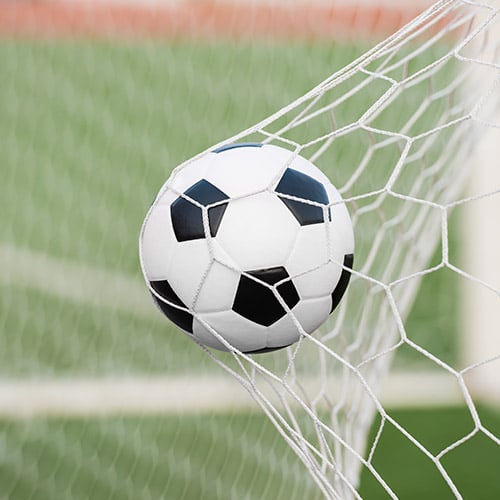Just because you provide your athletes with the information does not mean they will actually take it in. There are many different obstacles and barriers that can hinder their learning. These can make it harder for your athletes to retain knowledge, which will negatively impact their learning and their performance.
So, what are some of the barriers to learning and how do you overcome them?
What are the greatest barriers to learning?
Numerous factors can hinder an athlete’s learning and their ability to excel. However, certain obstacles arise more frequently than others making them more common challenges. Some of these hurdles include…
Cognitive overload
Cognitive Load Theory emphasises the significance of the working memory, a crucial component when processing and retaining new information. When athletes are bombarded with an excessive amount information all at once, their working memory can become overloaded.
For example, let’s look at the scenario of providing a long jump athlete with feedback. If the jumper is given three distinct elements to focus on, such as their run-up speed, getting their feet behind the board on take-off and maintaining an aerodynamic shape in the air, this large volume of information may overload their working memory. This means they may forget most, if not all of these elements.
Motivation levels and sources
Motivation is a significant component when it comes to an athlete’s learning. However, when an athlete is motivated by an unhealthy source, it can present challenges to their learning.
For example, if an athlete is extrinsically motivated by tangible rewards such as money, they may be tempted to speed up their performance pathway to receive that. They may look for short cuts and loopholes to skills that take a long time to master and not learn the correct technique, which can negatively impact their performance.
Lack of motivation is a significant hurdle in sports. When an athlete lacks motivation, they may find it challenging to fully engage in training sessions or competitions. This lack of drive can hinder their ability to absorb and retain new techniques, strategies and skills that are crucial to their performance.
An athlete’s perception of the coach
It’s not just a coach that understands how much impact they have on their learning and performance but also the athlete. Coaches need to be seen as experts by the athlete. Viewing their coach as someone with a vast amount of knowledge will heighten the trust an athlete has for them. They need to view their coach as a role model, a high-status person who will help improve their athletic abilities and take their performance to a new level.
When an athlete sees their coach in this manner, they will be more open to learn from them. However, if an athlete fails to see their coach this way, they may question their credibility and intelligence. Doubts may arise regarding the coach’s teaching capabilities, leasing the athlete to become more resistant to their methods of instruction.
How to overcome the key barriers to learning
Now that we have identified the key hurdles to overcome in your athletes’ sporting journeys, we can find ways to target them directly to ensure that your athletes succeed on their respective sports. Here are some tips to help you achieve this…
- Break down complex skills into sub-routines – When skills are very hard, athletes can feel overwhelmed and demotivated when trying to learn them. This may even result in cognitive overload. However, breaking skills down into small pieces or sub-routine makes it easier for athletes to understand the skill and stop them from getting overwhelmed.
- Establish your status as a coach – Athletes need to know that the coach they have is someone who will enhance their learning and performance. Developing respect between you and your athlete is key. Don’t just tell your athlete to do something, but also provide them with reasons why so they know what you’re talking about.
- Unleash your athletes’ motivation – Self-Determination Theory argues that motivation derives from a sense of autonomy, competence and belonging. If these three components are boosted, this will increase your athletes’ motivation to learn and therefore improve their performance.
Motivate your athletes using Self-Determination Theory
Earlier, we said to increase your athletes’ motivation, autonomy, competence and belonging – but how do we do this? Here are three strategies that may help you…
- Foster winning moments
One of Rosenshine’s key principles for learning is the significance of high success rates. Consistently highlighting your athletes’ accomplishments increases their competency levels, ultimately increasing their confidence and motivation.
- Forge a team spirit
Strengthening the bonds among your athletes is crucial. Whether it’s as a team or in an individual sport, athletes need to work together to create a cohesive team environment. Incorporating team building activities such as collaborative learning sessions can really increase team spirit and therefore an athlete’s sense of belonging. This encourages athletes to support and motivate one another throughout training and competition.
- Give athletes (some) choices
Offering athletes choices within their learning journey can enhance engagement and motivation. You can do this in many ways, such as allowing them to select their own post-session stretches or letting them choose which set of drills to warm up with.
This will enhance an athlete’s sense of autonomy as they get to actively take charge of their own development. However, it is important to find a balance when granting choices to athletes: they may not always have the foresight to determine what is most beneficial for their learning.
Final thoughts
Learning can be influenced by various factors including motivation, perspective, and cognition. Whilst it may seem like there are many hurdles to overcome, there are strategies to help you with this. Targeting these strategies can unlock your athletes’ potential, allow them to retain knowledge and help them to achieve greatness in the long run.





